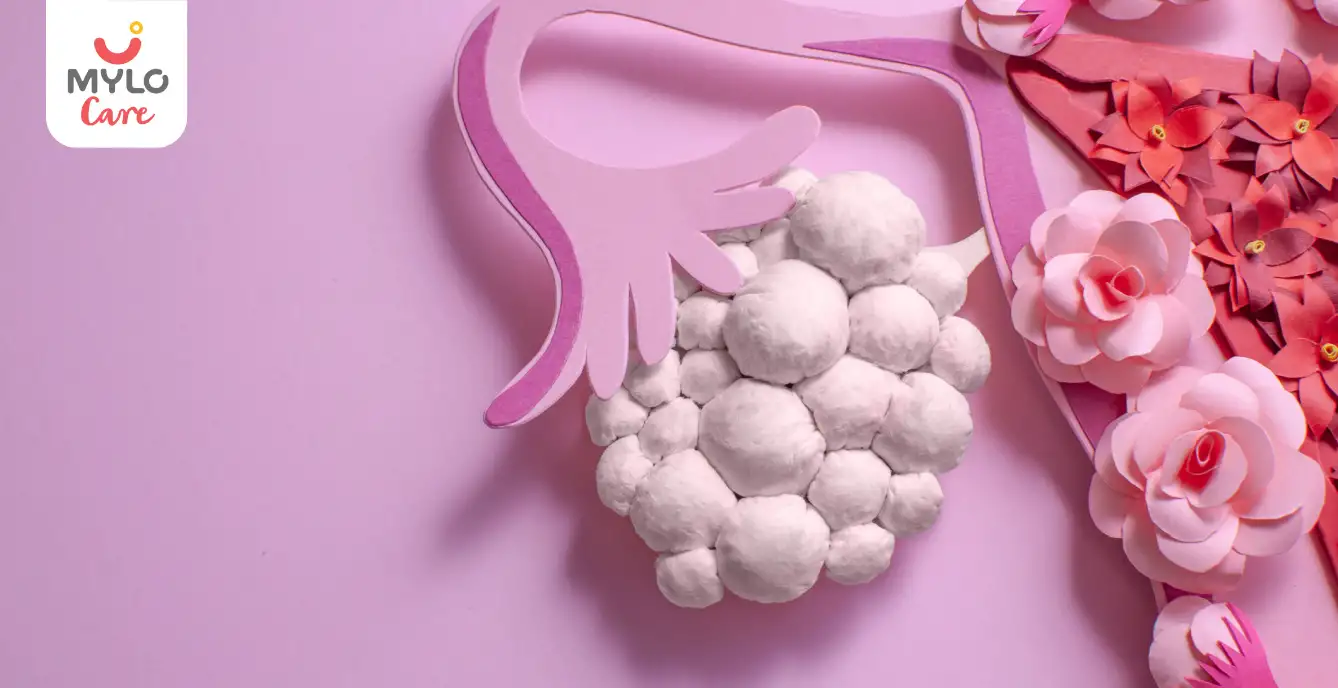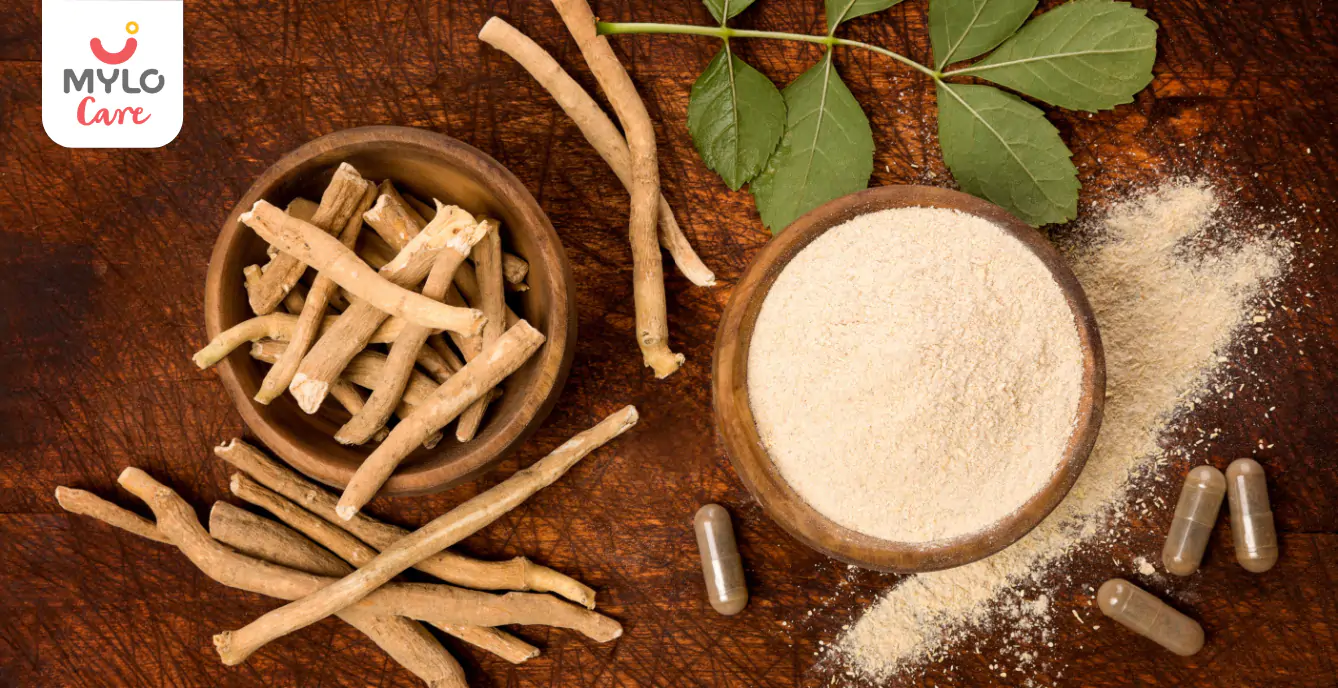Home

Hormones

Why are Some Women Recommended HCG Injection During Pregnancy?
In this Article

Hormones
Why are Some Women Recommended HCG Injection During Pregnancy?
Updated on 27 February 2024
As a pregnant woman, you want to do everything in your power to ensure the health and well-being of your baby. One way to do this is to get an HCG injection during pregnancy. HCG, or human chorionic gonadotropin, is a hormone that is produced during pregnancy to help the baby grow and develop.
In this article, we will explore the benefits of HCG injections during pregnancy, why doctor suggest HCG injections during pregnancy, the side effects of HCG injections during pregnancy, how to prepare for HCG injections during pregnancy, and the risks involved with HCG injections during pregnancy.
What is HCG Injection?
HCG, or human chorionic gonadotropin, is a hormone produced by the placenta during pregnancy. It is important for the development of the embryo and the fetus, as it helps maintain the pregnancy and supports the baby's growth. HCG injections are used to replace the natural levels of HCG that may be lacking during pregnancy.
The HCG injection is typically given in the first trimester of pregnancy and can be used to treat certain medical conditions, such as infertility and recurrent pregnancy loss. HCG injections are typically made up of a combination of HCG hormones, including human chorionic gonadotropin, human menopausal gonadotropin, and follitropin alfa. These hormones work together to stimulate the ovaries and help the body produce the hormones necessary for a healthy pregnancy.
You may also like: Vaccines in Pregnancy: When to Take TT Injection During Pregnancy?
Benefits of HCG Injection During Pregnancy
HCG injections during pregnancy can provide many benefits for both the mother and the baby. Some of the most common benefits of HCG injections during pregnancy include:
1. Improved fertility
HCG injections can help improve fertility by increasing the chance of successful implantation of the embryo. It also helps to regulate the menstrual cycle and increase the chances of ovulation.
2. Reduced risk of miscarriage
HCG injections can help reduce the risk of miscarriage and other complications during pregnancy. The hormone helps to maintain the pregnancy and supports the growth of the baby.
3. Reduced risk of gestational diabetes
HCG injections have been shown to reduce the risk of gestational diabetes, a condition in which a pregnant woman has high blood sugar levels.
4. Improved blood circulation
HCG injections can help improve the circulation of blood throughout the body, which can help the mother and the baby receive the nutrients they need.
5. Improved fetal development
HCG injections can help promote healthy fetal development and growth. It can also help lower the risk of birth defects.
Why Doctor Suggest HCG Injections During Pregnancy?
Doctors typically suggest HCG injections during pregnancy for a variety of reasons. First, it can help improve fertility and reduce the risk of miscarriage. Second, it can help to regulate the menstrual cycle and improve ovulation. Third, it can help to reduce the risk of gestational diabetes. Finally, it can help to improve fetal development and growth.
Doctors may also suggest HCG injections during pregnancy to treat certain medical conditions. For example, it can help to regulate the hormones in women who have polycystic ovary syndrome (PCOS). It can also be used to treat male and female infertility.
Side Effects of HCG Injection During Pregnancy
Although HCG injections are generally safe during pregnancy, there are some side effects that can occur. Some of the most common side effects include dizziness, headaches, fatigue, nausea, and breast tenderness. In some cases, HCG injections can also cause uterine contractions. It is important to talk to your doctor if you experience any side effects from HCG injections.
How to Prepare for HCG Injection During Pregnancy?
Before getting an HCG injection during pregnancy, it is important to talk to your doctor to make sure it is the right treatment for you. Your doctor will be able to discuss the risks and benefits of HCG injections, as well as any other treatment options that may be available.
Your doctor will also be able to provide you with instructions on how to prepare for your HCG injection. This may include avoiding certain medications and supplements, as well as avoiding alcohol and caffeine. It is also important to eat a healthy, balanced diet and get plenty of rest before getting an HCG injection.
Also Read: Why are Some Women Recommended Progesterone Injections During Pregnancy?
Risks Involved with HCG Injection During Pregnancy
Although HCG injections are generally safe during pregnancy, there are some risks involved. Some of the most common risks include an increased risk of multiple births, preterm labor, and miscarriage. It is important to talk to your doctor about the potential risks before getting an HCG injection.
Conclusion
HCG injections during pregnancy can provide many benefits for both the mother and the baby. However, it is important to talk to your doctor about the potential risks and benefits of HCG injections before getting one. With the proper preparation and care, HCG injections can be a safe and effective way to support a healthy pregnancy.
References
1. Theofanakis C, Drakakis P, Besharat A, Loutradis D.(2017). Human Chorionic Gonadotropin: The Pregnancy Hormone and More.
2. Järvelä IY, Tapanainen JS, Martikainen H.(2010). Improved pregnancy rate with administration of hCG after intrauterine insemination: a pilot study. Reprod Biol Endocrinol.



Written by
Anupama Chadha
Anupama Chadha, born and raised in Delhi is a content writer who has written extensively for industries such as HR, Healthcare, Finance, Retail and Tech.
Read MoreGet baby's diet chart, and growth tips

Related Articles
RECENTLY PUBLISHED ARTICLES
our most recent articles
Sudden Infant Death Syndrome
Sudden Infant Death Syndrome (SIDS): Meaning, Causes & Prevention

Periods
Period After Abortion: What to Expect About Timing, Duration and Frequency
Daily Care Tips
Thumb Sucking: How to Help Your Child Break the Habit

Women Specific Issues
The Ultimate Guide on How to Shrink Ovarian Cysts Naturally

Conception
Ashwagandha Benefits for Female & Male Fertility: How This Ancient Herb Can Help You Conceive

Swaddling
What are the 12 things that parents can do with their baby in the first 12 months?
- The Lowdown on Cetirizine in Pregnancy: A Must-Read for Expecting Moms
- The Ultimate Collection of Paheliyan with Answer for Kids
- The Ultimate Guide to Abdominal Pain After Abortion Causes and Care
- Ovulation Kit 101: A Beginner's Guide to Tracking Fertility & Maximizing Your Chances of Conception
- Is Breast Pain after Abortion Normal? What You Need to Know
- Twin Pregnancy: Signs, Types & Risks
- Chasteberry Benefits: The Natural Remedy You Need for Infertility, Hormonal Imbalance, and PMS
- The Ultimate Guide to Planning the Perfect Baby Shower
- 50+ New Born Baby Wishes to Congratulate New Parents
- First Period After C Section: How Long Does It Last
- Introducing Solid Foods to your 6-month-old Baby? Here is a complete Food Chart along with some Nutritious Recipes
- What to expect about the height/length of 6 months old?
- The Development of Your Kid at the Age of Four Months
- Burping Your Baby


AWARDS AND RECOGNITION

Mylo wins Forbes D2C Disruptor award

Mylo wins The Economic Times Promising Brands 2022
AS SEEN IN

- Mylo Care: Effective and science-backed personal care and wellness solutions for a joyful you.
- Mylo Baby: Science-backed, gentle and effective personal care & hygiene range for your little one.
- Mylo Community: Trusted and empathetic community of 10mn+ parents and experts.
Product Categories
baby carrier | baby soap | baby wipes | stretch marks cream | baby cream | baby shampoo | baby massage oil | baby hair oil | stretch marks oil | baby body wash | baby powder | baby lotion | diaper rash cream | newborn diapers | teether | baby kajal | baby diapers | cloth diapers |




